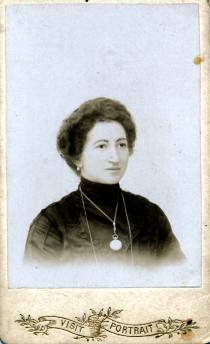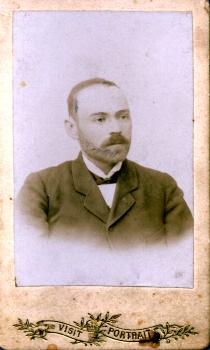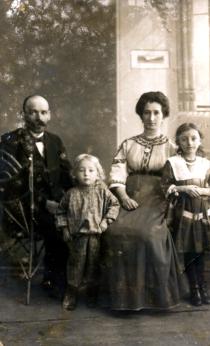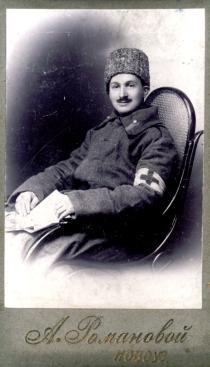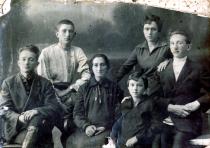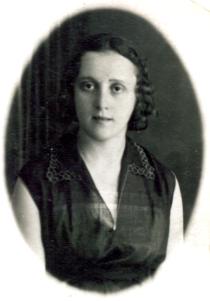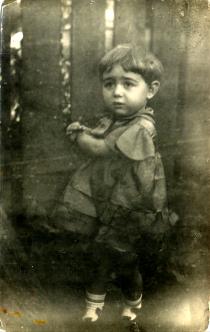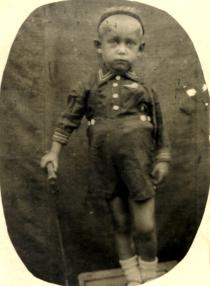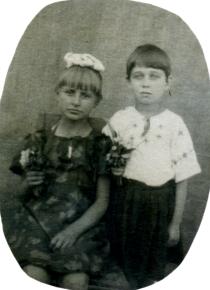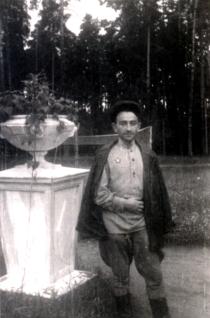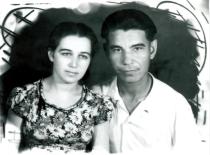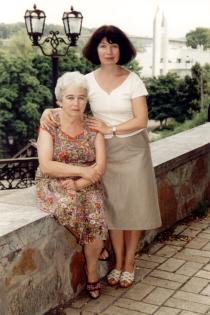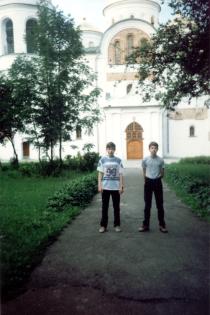This is my mother Revekka Ostrovskaya, photographed during her visit to Kiev in the early 1930s. The picture was taken in Mulman Photo Studio in Kreschatik Street.
My mother was born in Kalygarka in 1906. She finished a Jewish elementary school. She could read and write in Russian and Ukrainian, but her mother tongue was Yiddish. She went to work at the stocking factory in 1918. There were many young employees, and work at the factory changed her life. She had her hair cut and joined the group of young people that was fond of revolutionary ideas and the urge to build a new socialist society. My mother joined the Komsomol and became a member of the Communist Party in 1927. She was an active communist and within a few years she went to work in a district party committee where she met my father Boris Braverman. They fell in love with one another and got married in 1931. Of course, a Jewish wedding was out of the question. They just had a civil ceremony and no wedding party.
I was born on 16th October 1933. My communist parents named me Engelina, after one of the leaders of the world proletariat, Engels. They called me Lina at home. When I was to obtain my passport after the war I had the name of Lina written into it. I was born in a very hard year [during the famine in Ukraine]. My mother said she was afraid that I might not be born because she never had enough food when she was pregnant with me. However, I was born a small, but healthy girl.
We lived with Grandmother Pesia Ostrovskaya, nee Fridkina, in a small house in Frunze Street. There were two rooms and a kitchen with a Russian stove. There was a chicken house and a shed where the family kept a piglet. It goes without saying that there was no observance of any kosher rules in the family. On Pesach my grandmother cooked food from matzah that she bought at the synagogue. She only went to the synagogue to buy matzah once a year. There was no seder on Pesach, just a family gathering for dinner. There were no kosher dishes and my grandmother always recalled her beautiful kosher crockery that she had before the Civil War. There was horseradish, radish, chicken broth with 'galka' dumplings made from matzah flour. The house was thoroughly cleaned before Pesach. Clean curtains were hung up and the table was covered with a starched tablecloth. My grandmother said that one had to prepare for Pesach as one would for 1st May, but nobody told me what Pesach was really about. As for the other Jewish holidays, I didn't even hear about them.
My mother worked as a party secretary in a kindergarten and at school, but she wore casual clothes. She had one or two worn-out calico dresses and a fancy dark blue suit for all festive occasions. Her friends also had poor clothes. Modesty and poverty was almost the standard of a party official's life.

